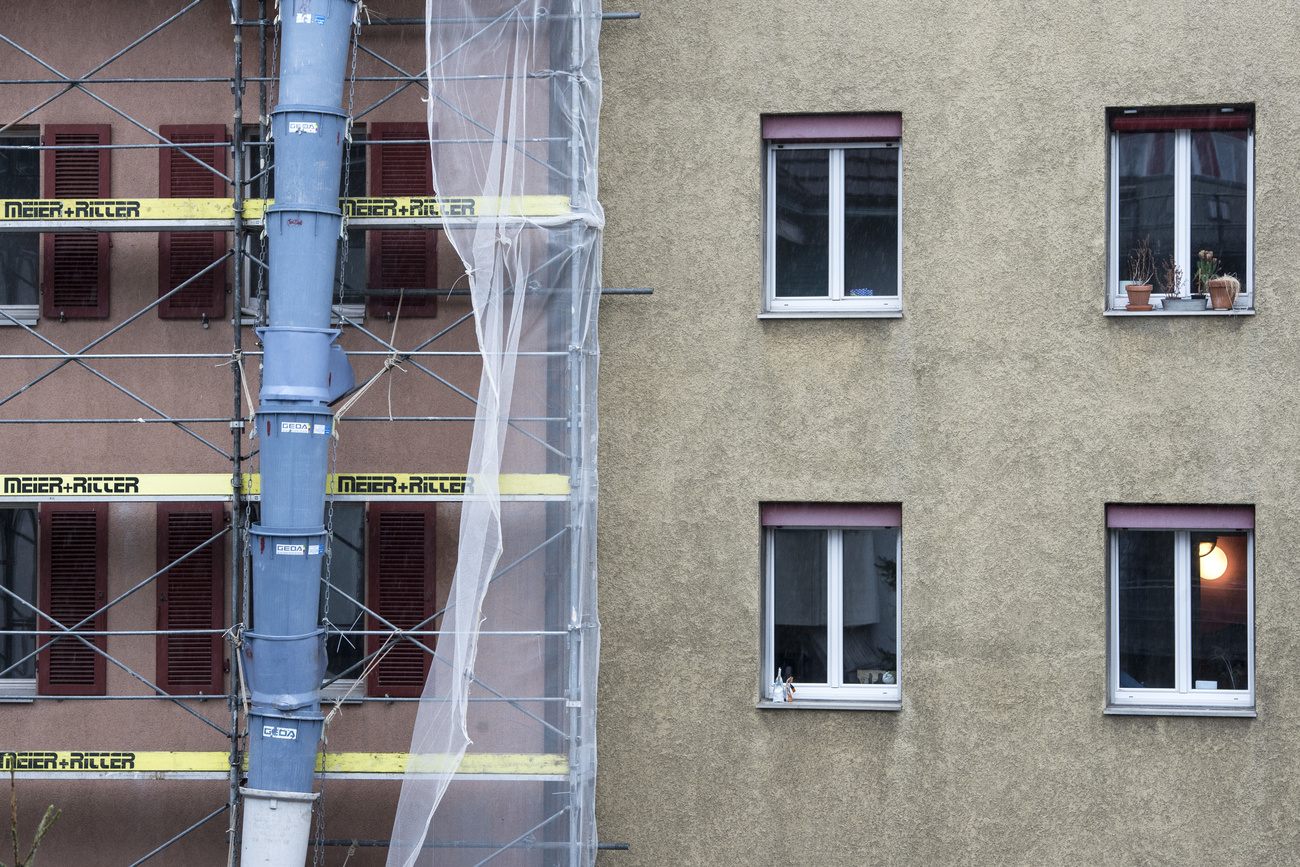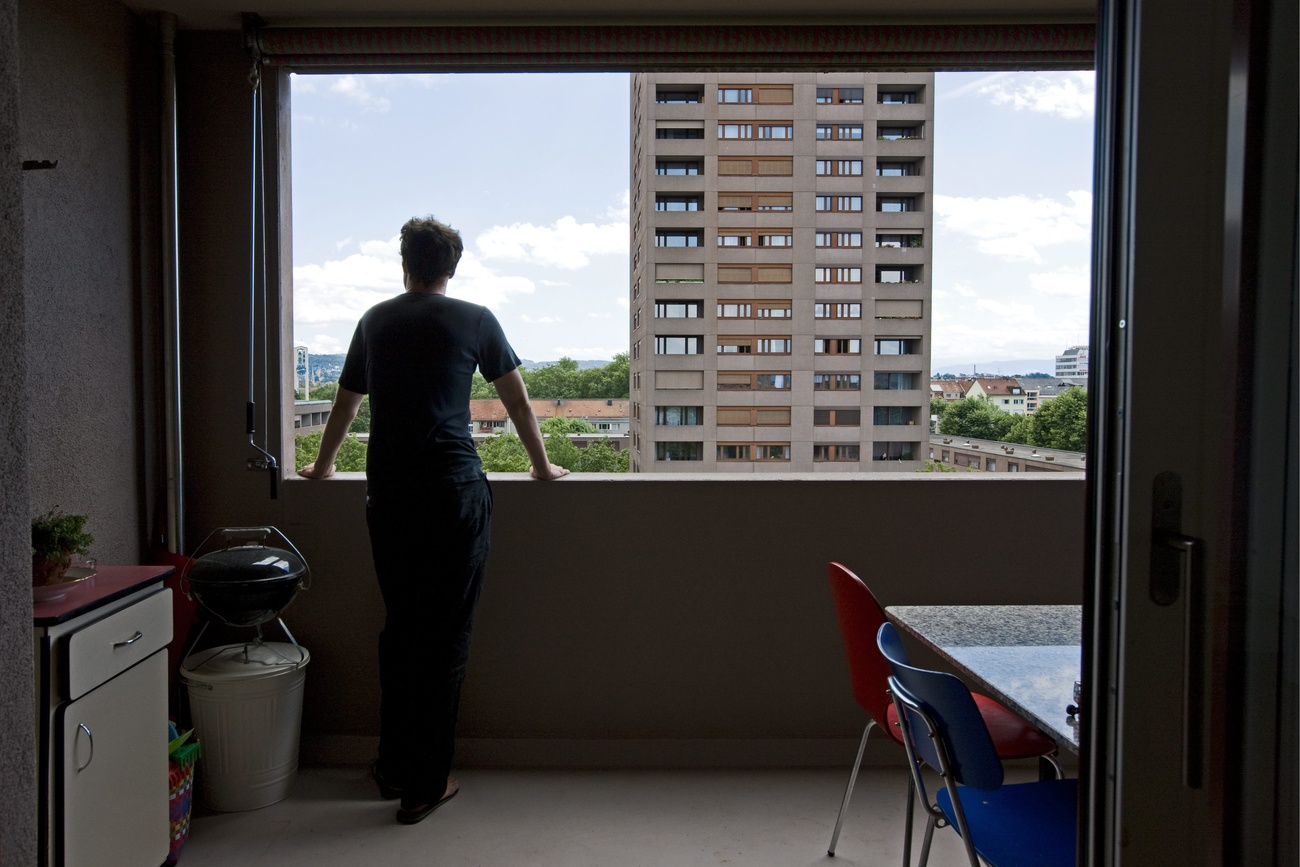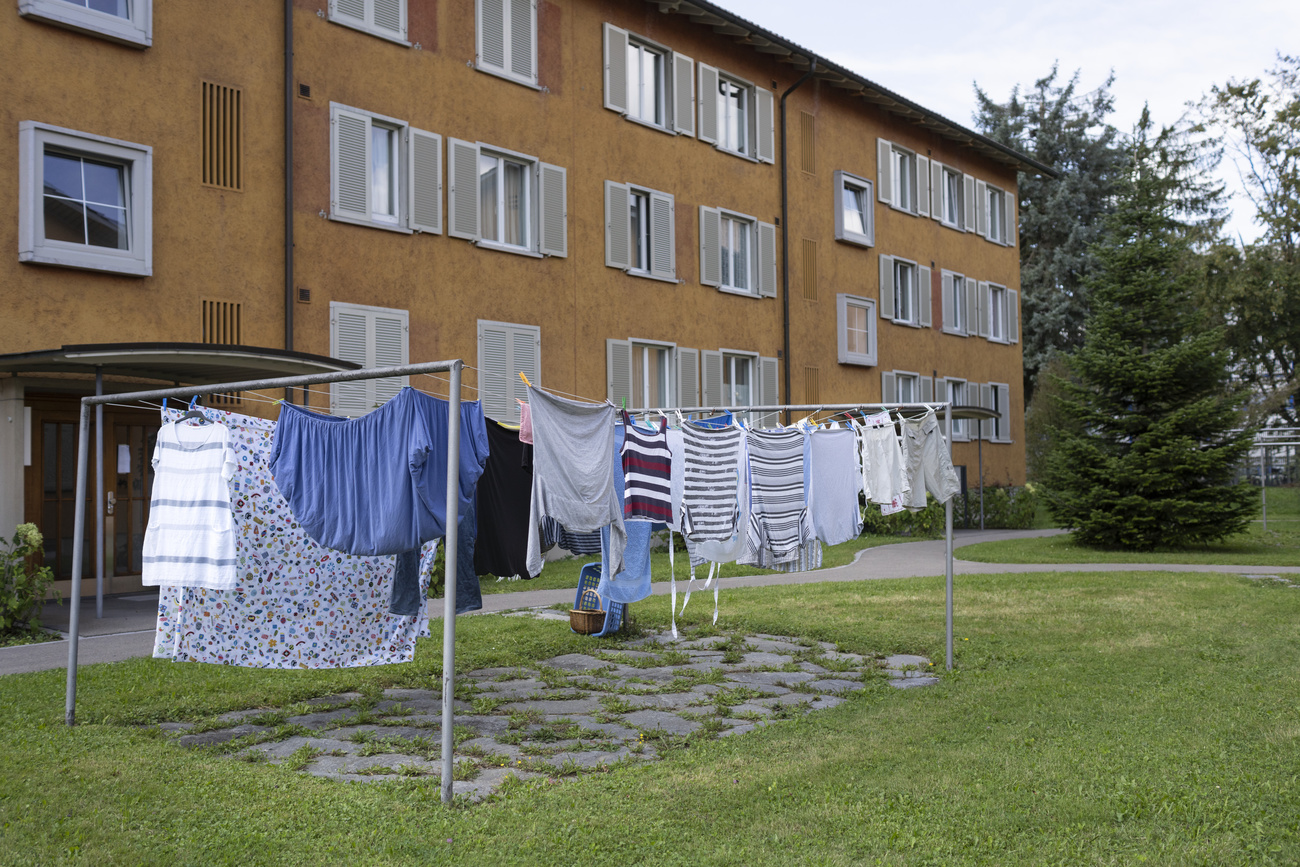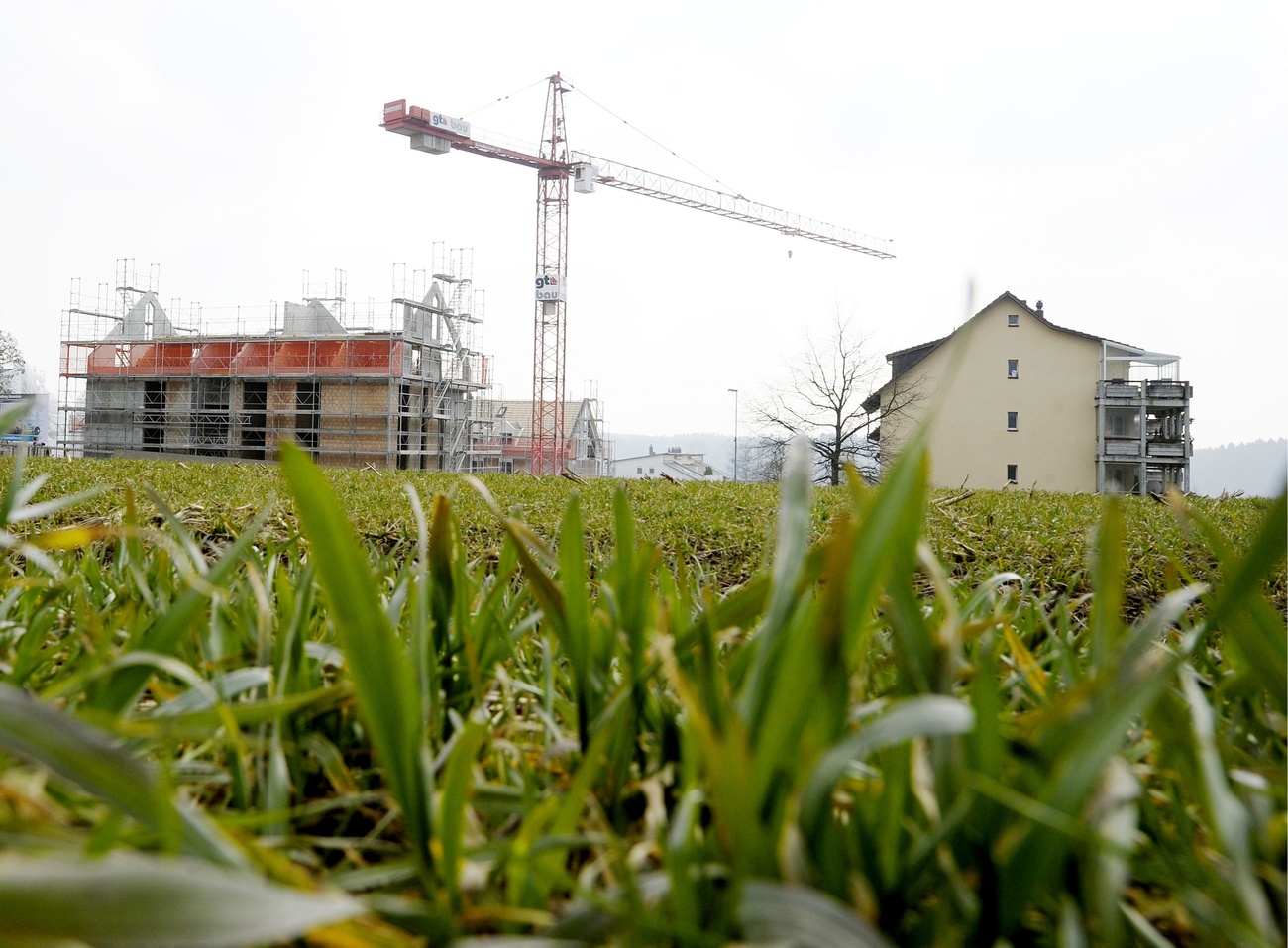Voters to decide if Swiss landlords need extra rights

The Swiss parliament has amended tenancy law to prevent subletting abuses. It has also made it easier for landlords to terminate leases early to use a property for personal use. A national tenants’ association opposes the modifications and launched a double referendum. Voters will decide the two issues on November 24.
Tenancy law affects a majority of people in Switzerland, where 60% of the population – the highest percentage in Europe – rents a home. Although many tenants would like to own a residence, the tight property market, high prices, and financing obstacles are often prohibitive.
Switzerland’s tenancy legislation stipulates that rent must be tied to a reference interest rate. But currently, rents in many urban areas are also affected by the shortage of rental housing, which is driving prices up. This has spurred tenants’ organisations to seek stronger protections for renters. Parliament, however, appears to see things differently. Last year, it ratified two amendments initiated by right-wing parliamentarians that revise the law in favour of landlords.
These changes are modifications rather than a full-blown reform. Opponents are calling this a “sausage-slicing tactic” that progressively shaves away at tenancy law in an “anti-democratic and costly” way. In early 2025, the House of Representatives is scheduled to start working on two projects aimed at limiting challenges to unfair rents.
How are subletting abuses being addressed?
The revision gives landlords greater latitude to refuse subletting. In order to sublet a property, a tenant will now need written consent from the landlord – and will have to keep him or her informed of any subsequent changes.
A landlord will be able to reject a sublet if the tenant fails to communicate all details or if the sublet exceeds two years. The landlord may also refuse permission if he or she sees major drawbacks or considers the terms of the sublet to be unfair – but the law does not go into detail about legitimate grounds for refusal. Future case law will have to determine the specifics where necessary.
How is early lease termination being simplified?
When a landlord sells a property in Switzerland, any existing leases are transferred to the new owner. Current law allows the new owner to terminate a lease early (at the time the lease would normally be renewed) for residences or commercial spaces – provided he or she asserts an urgent personal need for the property.
If a dispute arises, proceedings can take several years. The law’s amendment drops the requirement of urgent need and replaces it with “significant and current personal need” based on an “objective assessment” yet to be spelled out by the Federal Court.
Who supports the two amendments and why?
The real-estate sector and right-wing parties feel the amendments are targeted, equitable, and will not affect rents. They reject the notion that the revisions are an attack on tenants. Instead they consider them clarifications of concepts in the existing law.
During parliamentary debates, Philippe Bauer of the centre-right Radical-Liberal Party argued that a landlord might currently have to wait three or four years to reclaim a property after declaring an “urgent need” for it.
The Chambre genevoise immobilière, a property association in canton Geneva, asserts that “the two amendments have extremely modest consequences for tenants who act correctly”. The association also points out that tenants retain the right to contest a landlord’s claim.
According to supporters, the subletting amendment defines clear rules that protect both landlords and leaseholders from injustice. The changes, they say, bring transparency and legal certainty – and are necessary due to widespread subletting via platforms like Airbnb. This type of sublet takes apartments off the market for long-term tenants and is often done with a significant price markup.
Supporters emphasise that students sharing flats won’t be penalised as they will still be able to put multiple names on a lease or continue to sublet a room for an unlimited amount of time (as long as the landlord does not set a time limit).
Why is this double reform up for a vote?
Asloca, a national tenants’ association, considers the amendments an attack by the property lobby. It launched a referendum after gathering the necessary signatures.
During parliamentary debates, left-wing Social Democrat and Asloca president Carlo Sommaruga maintained that there is no need for the reforms. He feels they only complicate the relationship between landlords and tenants. The federal government also recommended against the reforms, judging them to be unjustified and even disproportionate.
The opposition – led by the left-wing parties and unions – believes the revisions dismantle protections for tenants, especially against unfair evictions. Landlords will end up with a disproportionate amount of power: they will more easily be able to terminate leases and refuse sublets.
The Swiss Student Union also opposes the reforms, fearing they will “massively [worsen] rental (or subletting) conditions for students”.
Asloca feels that rents should have decreased in recent years given the low interest rates. Instead, prices have risen, costing leaseholders billions. “Landlords are enjoying obscene profits and increasing rents well above authorised limits, especially when there’s a changeover of tenants,” says the organisation.
The opponents accuse property owners of wanting easier lease-termination in order to profit from the tight rental market by re-letting at a very high price. They also fear a risk of increased speculation in the sale of rental properties.
Will Swiss Abroad be affected by the changes?
Swiss tenants who move abroad for work, education, or other reasons will be affected by the reforms if they wish to retain their leases and sublet their homes. They will still be able to sublet for up to two years; beyond that, they will have to come to an agreement with their landlords.
Edited by Samuel Jaberg. Adapted from French by K. Bidwell/gw

In compliance with the JTI standards
More: SWI swissinfo.ch certified by the Journalism Trust Initiative











You can find an overview of ongoing debates with our journalists here . Please join us!
If you want to start a conversation about a topic raised in this article or want to report factual errors, email us at english@swissinfo.ch.